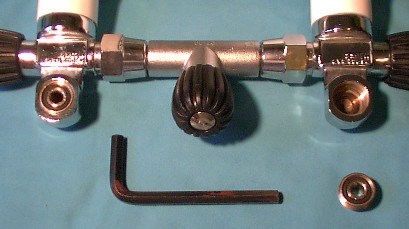
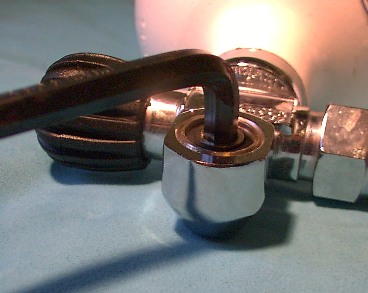
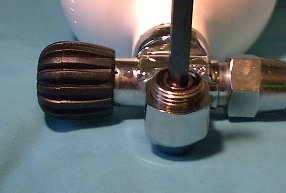
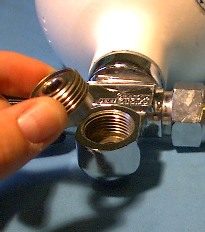
When I learned to dive, I used a single 12 litre cylinder. When I had qualified and started to think about getting my own equipment, my choices seemed to be:
I rejected the idea of a single cylinder - I preferred the idea of two separate regs on two cylinders, to make me more self-sufficient. I therefore had to consider either a pony or a twinset.
On the grounds that twinsets are large, bulky, and expensive, I rejected them. I just didnít do the kind of diving where a huge amount of gas would be helpful. But I wanted to be able to carry a little extra gas, and didn't want 300 bar. So, I bought myself a 15 litre cylinder, and a 3 litre pony.
Shortly afterwards, I discovered that twinsets DIDNíT come only in Large and Extra-Large. You could also buy twinned 7L cylinders - almost as much gas as a 15, every bit as much redundancy as a pony, and much, much lighter. I sold my pony and cylinder, and got myself a twinset.
There seem to be a fair number of misconceptions about twinsets. I know I was guilty of at least one of them, so Iíll try and clear them up here:
Twinsets are too heavy for recreational diving
Twinsets are too big for recreational diving
Twinsets mean additional task loading.
Twinsets allow you to loose all your gas.
Having done quite a few dives with my 15 + pony rig, I was very happy to go over to the smaller, lighter twin 7s. I still spend a lot of time in the pool, practising shutdowns, and try to run through at least one shutdown on every open water dive, to keep in practice.
I went for DIN fittings, not so much because they're more secure, but because they were more compact. Because my club only fills A-clamp cylinders, I had to get the yoke adapters, which are easily added or removed:




I also have boots on my cylinders.

I'm aware of the arguments against them - line entrapment, loss of streamlining, etc etc. However, my boots are free of the ridges that might make me agree that these are significant enough to warrant removal, and I've yet to see the slightest sign of corrosion on the booted area.
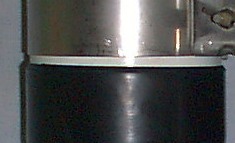
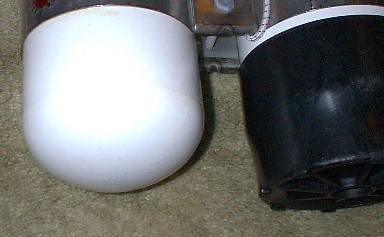
My cylinders do tend to get a rough time of it, what with the club boat being a RIB, and the compressor room floor being concrete. Boots make life easier above water, and have yet to cause any problems below it.
The most reasonable statement I've yet heard from the anti-boot lobby is simply "Boots are of no use underwater, therefore should not be taken there." Perfectly true, but it's too much hassle to remove them all the time. They're too useful above water for me to dispense with them, therefore they stay with me.